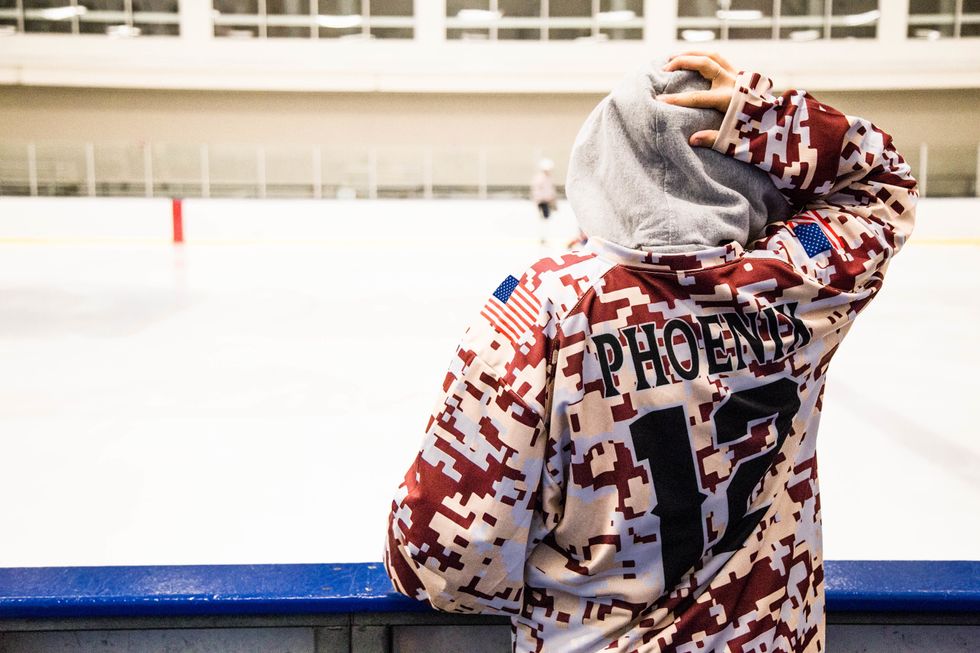One of the deadliest parts of getting a concussion is not understanding how destructive it can be to your brain and to your life. The Invisible Injury it is often recognized as and it contributes to its life-changing damage. A concussion is a serious trauma to the brain. Just because you cannot see its effects on someone, it does not mean they aren't hurting.
The symptoms of a concussion are internal, meaning so is experiencing it. I am not going to complain about the lights being too bright or the radio being too loud. I am not going to tell you that every time you slam a door or put silverware away I wince.
It is never-ending. I am not going to complain about it forever. It becomes the new normal. It turns into a daily endeavor that turns into our new reality.
Tears are brought to my eyes for no reason. I cannot use a fork and knife properly. I get quiet. I get tired. I now have limits that I had never had that has resulted in boundaries I need to make that I hadn't had to before.
Simply put, once you have trauma to the brain it never really goes away. I am not the same person I was before my six concussions, and I hopefully won't ever be the same person I am now. The recovery process is a slow one.
As tough as we athletes want to be, we only have one brain. I learned that the hard way. I never thought this would happen to me after I was told repeatedly that I needed to be careful. The invisible injury has become visible for me, and that is one of the scariest things I have had to deal with.
Never take it lightly. Take it one day at a time, but if you have had a concussion or have had a few like me, know that time does so much to heal.
Not only have I learned my lesson the hard way, but my life has changed now that I have this new challenge to face. I need to slow down. I cannot participate in all the activities I used to. I can never play a contact sport again. I take every hit to the head 1000x more seriously because I have to. I have one brain and one life.
I have to quit the one thing that has gotten me through every other challenge I've had in my life—ice hockey. I had to reteach myself how to use a knife and fork. I had to accept my moodiness. I had to dish out too many apologies to people I care so much about. I had to explain to them something I didn't fully understand myself. I had to apologize to myself for not taking the time I needed to. I still have to apologize to myself for trying too hard to get back into the swing of things.
On a brighter note, I can thank the concussions for teaching me my most valuable lesson—appreciating everything I can do and everything that I have. It has shown me that one day I may not be able to do simple things, and that is a part of life. It brought me new activities, new people, and new opportunities. I am studying things I otherwise wouldn't have. I went abroad when I wouldn't have before. It has changed my life for the better and for the worse.
You need to accept it. I am still in the process of that, but each day is a step in the right direction. Don't let it consume you but know the brain is a tricky part of being human. It has a funny way of healing itself, but it takes time. Don't be afraid. Your future may look a whole lot different than planned, but don't let anyone tell you that you cannot do it.
To the people who think concussions aren't a big deal: they are. We all may look fine whether we are concussed or just having a terrible day, but it doesn't mean nothing is wrong. It just means we are fighting through it.



 Photo by
Photo by  Photo by
Photo by  Photo by
Photo by 



















